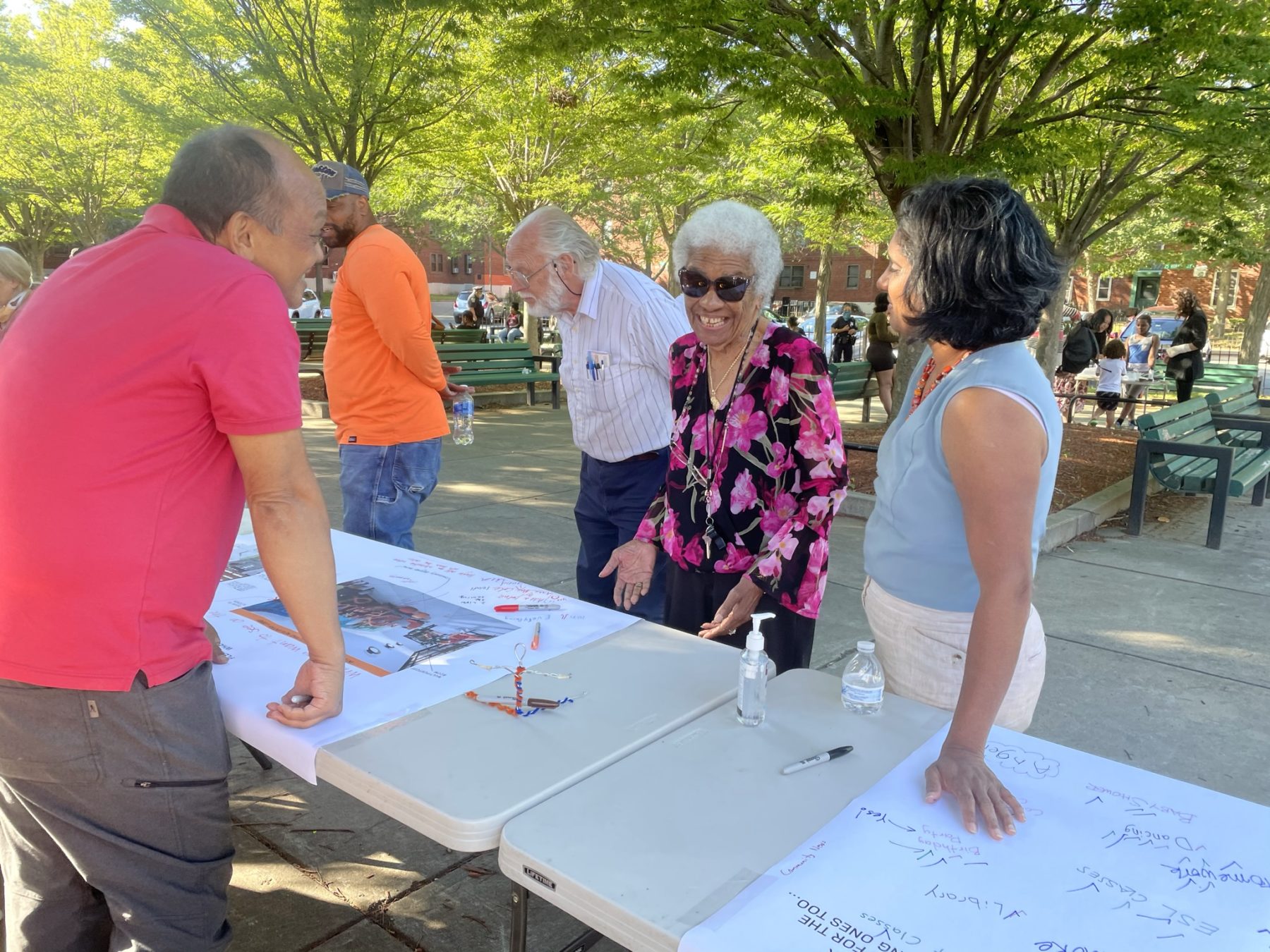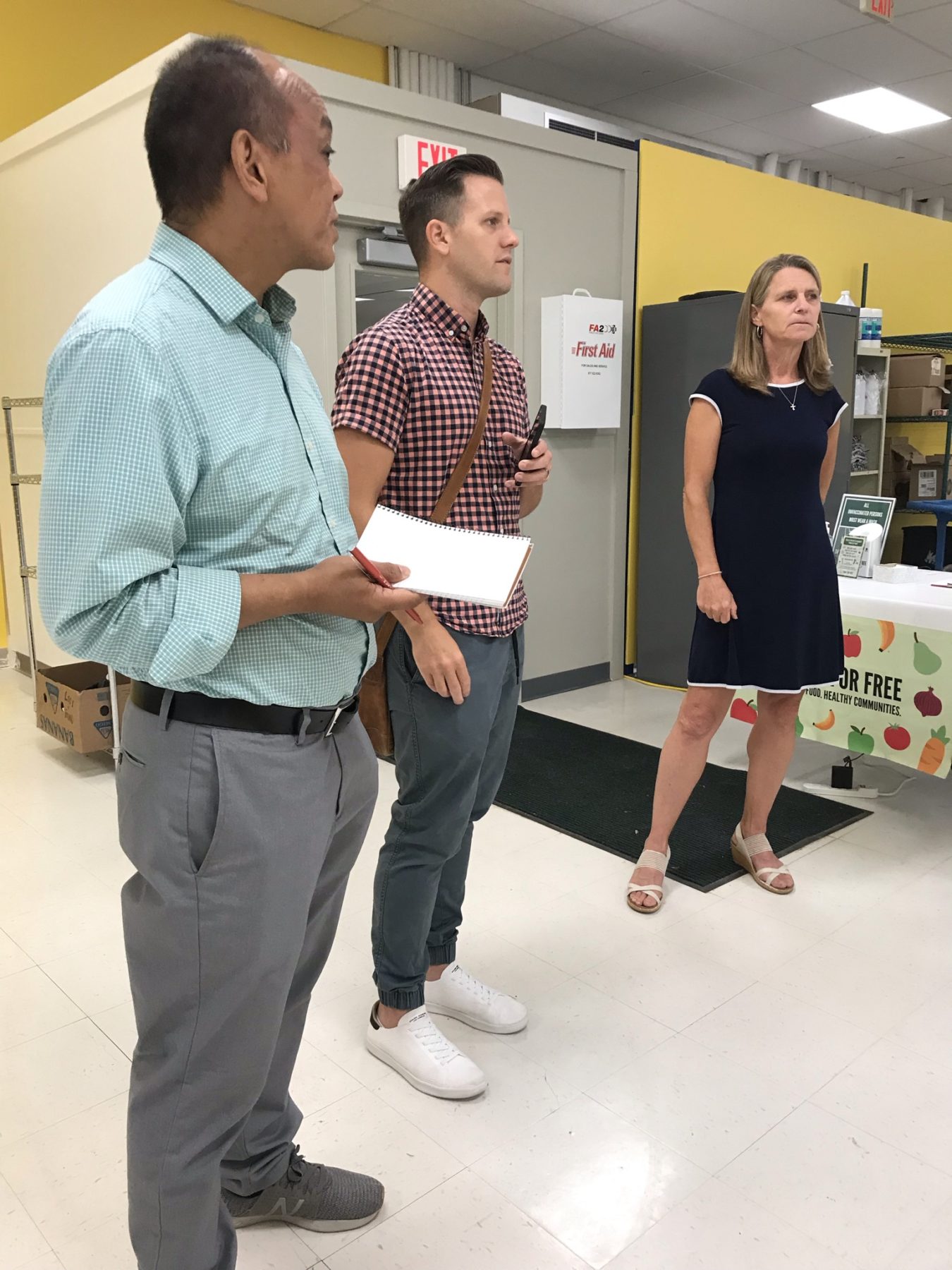Only when our profession reflects the demographic composition of the society that we serve will we truly be on the right track.
Whitney M. Young, Past President of the National Urban League, in his 1968 keynote address to the American Institute of Architects
The PCA team continues to take positive action to help improve social equity and create a more inclusive, diverse design profession. We have an active and committed JEDI (Justice. Equity. Diversity. Inclusion) Council in the firm.
And we are making an impact – one action at a time.
The JEDI Council’s homegrown mission and goals include ongoing, tangible actions to fight systemic racism, to make lasting changes to our organizational culture regarding JEDI, and to invest our time and resources in providing opportunities for Black, Indigenous and other People of Color.
As a certified JUST 2.0 Organization, we pledged a transparent approach in disclosing our firm’s community investments and social equity practices. In keeping with that promise, we want to share news on the commitments made and substantial actions taken as a company. We also want to welcome our design industry colleagues to team with us on these activities.
Moving Towards a More Diverse, Inclusive Profession
Anyone who is active in the design, construction and commercial real estate professions knows that diversity and inclusion quite visibly lag other industries – including those of our clients. In fact, the presence of People of Color in architecture and related professions remains historically low.
The National Council of Architectural Registration Boards’ (NCARB) tenth annual data report (2021), NCARB by the Numbers, shows the disparity between the architecture profession and the overall U.S. population. Gender diversity improved slightly from 2019, with women comprising 24% of registered architects. Architects identifying as ethnic minorities were 11% of those registered.
However, only 2% of architects identify as Black or African American, a stark contrast with census data showing that Black Americans make up approximately 15% of the U.S. population. Black female representation in our profession, while rising, is less than 1% of registered architects.
A/C/E Mentor Program – PCA is taking action to help spark interest in industrywide efforts and firm-specific initiatives among underrepresented young people in pursuing a career in design and related fields. Among the fastest growing national organizations working on this goal is the ACE Mentor Program, a nonprofit tapping into a network of volunteer mentors in 37 states. ACE, an acronym for Architecture, Construction, and Engineering, is mentoring 10,000 students from 1100 high schools across the country.
In the Greater Boston ACE program, over 75% of participants are students of color, and around half come from families with economic challenges. Slightly more than half of all students are female, a number that has increased for eight years in a row.
PCA team members, including Janine Byrne and others, devote time as volunteer mentors, working in tandem with peers from across the Boston area A/E/C industry. They provide a hands-on, project-based introduction to careers in the design and building industry through classroom and in-the-field sessions.
National Organization of Minority Architects (NOMA) – PCA is an active member of NOMA and supports the involvement of firm staff as individual members and volunteers. This industry association allows PCA to stay informed and educated and provides additional opportunities to join forces for the advancement of minority architectural students and architects in support of their contributions to the built environment.
Boosting the Next Generation
PCA is increasing our longtime engagement with and support of youth programs and opportunities in arts and design. Our partner organizations include:
- Boston Arts Academy
- Boston Architectural College (BAC) in collaboration with the Urban League of Eastern Massachusetts
- BAC NOMAS (student chapter of NOMA)
- BAC’s YouthBuild Boston Summer Program
- Children’s Arts Scholarship
- New Center for Education & Support for People of Color
- Jamaica Plain Neighborhood Development’s Center for Equity & Prosperity
- Cristo Rey High School Boston’s Corporate Work Study Program
BAC Summer Academy – In partnership with the Boston Architectural College (BAC), PCA’s Foundation established the YODA (Youth Opportunities for Diversity in Architecture) Fund which sponsors students selected through a collaboration with the Urban League of Eastern Massachusetts to attend the BAC’s Summer Academy. This program provides architectural design and problem-solving exploration of today’s issues impacting society and city life. It is an exciting and rigorous experience for high school students to collaborate alongside other students from all over the city, with BAC faculty and, of course, with local design practitioners who serve as role models and mentors.

